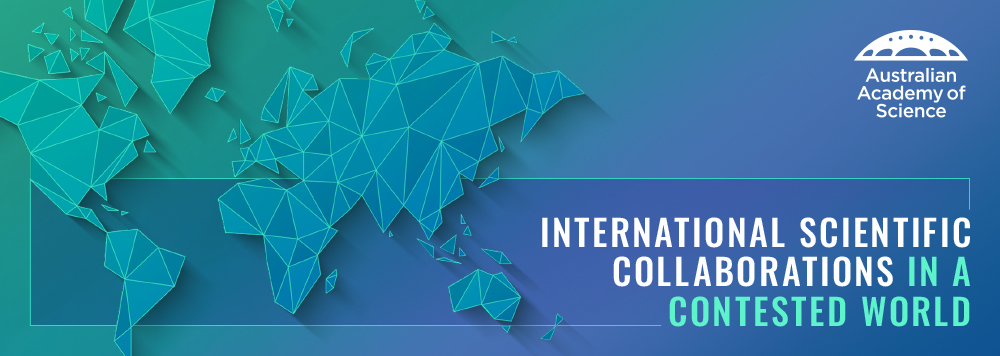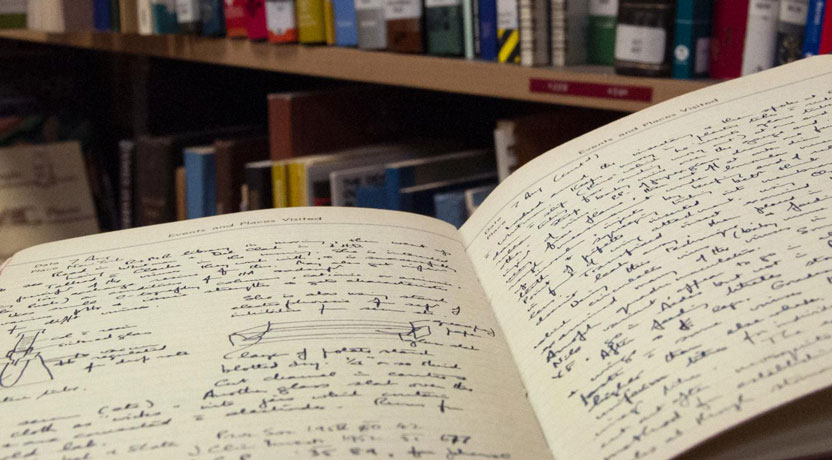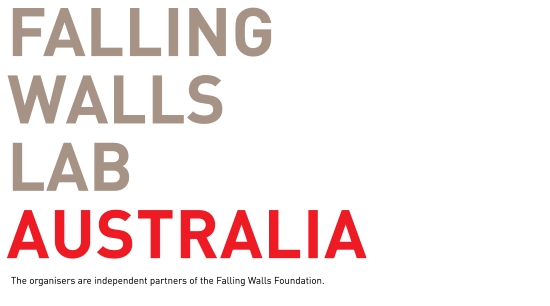

Don’t miss this extraordinary opportunity to be involved in a national dialogue about how we can address national security concerns whilst enabling the benefits that open scientific collaboration offers Australia and the globe. Our annual symposium, ‘International scientific collaborations in a contested world’, will explore how we can uphold the long-held values of the research enterprise – openness, accountability, objectivity, and integrity – whilst also managing geopolitical tensions and securing the prosperity of Australia and our region.
This nationally significant event is being convened by our Foreign Secretary, Professor Frances Separovic AO FAA, and Academy Fellow, Professor Steven Chown FAA. The program will be a combination of high-level keynote addresses and panel discussions, with Academy President Professor Jagadish being joined by speakers from around the globe.
The symposium will be held on 14 November, preceded by a symposium dinner on 13 November. Find out more and register for this unique event.
The Global Knowledge Dialogue for Asia and the Pacific will be held on 6 October in Malaysia, hosted by the International Science Council (ISC), the Academy of Sciences Malaysia and the ISC Regional Focal Point for Asia and the Pacific at the Australian Academy of Science. The event will see regional ISC members, along with ISC Fellows and representatives of ISC affiliated bodies, work towards providing a powerful and credible voice for science from Asia and the Pacific on the global stage.
One aim of the event is to provide a roadmap for the ISC Regional Focal point for Asia and the Pacific, and its upcoming initiatives. It will strengthen the voice of science in the region, and work towards developing actionable pathways that advance science as a global public good.
Find out more about this event.
Australia’s urban agenda must carefully consider the role of Country, biodiversity and nature-based solutions if it is to confront emerging challenges facing its cities and regions, says a group of early career urban researchers and practitioners.
The Early Career Urban Research Group, convened by Future Earth Australia and the RMIT Urban Futures Platform, has published a response to Future Earth Australia’s decadal plan for urban sustainability, which is currently under review.
The Academy is a proud supporter of the Australian Openness Agreement on Animal Research and Teaching in Australia. The agreement was created by the Australian and New Zealand Council for the Care of Animals in Research and Teaching (ANZCCART) and is a public pledge to demonstrate commitment to greater transparency in animal research. It is hoped the agreement will lead to more open communication with the broader community; shed more light on the pivotal role of animal research in improving our understanding of biology, and diseases, and developing and testing treatments; and promote awareness of the reasons why animals are used, and the steps taken to ensure that the use of animals is ethical, humane and responsible and is underpinned by an obligation to respect animals.
Read more about the agreement.
Inspired by National Science Week this month, we asked Fellows of the Academy why science matters.
The Academy’s archives hold a sprawling collection of stories from some of the country’s most renowned scientists. While the collections shine a light on their scientific processes and research, they also bring history to life: baring personal triumphs, struggles, and unexpected anecdotes.
In this article we’ve uncovered five anecdotes about well-known scientists drawn from their carefully curated collections.

The Academy has made a submission to government on Supporting responsible AI.
We offer our warmest congratulations to Professor Mary Garson who has been elected Vice-President of the International Union of Pure and Applied Chemistry (IUPAC). This is recognition of Professor Garson’s significant contribution to chemistry both in Australia and internationally. It is always terrific to see Australian scientists with leadership positions in the international scientific unions that play a critical role is shaping and developing scientific disciplines globally. The Academy’s 22 National Committees for Science have a key role in connecting with and contributing to international scientific unions on behalf of Australia. Congratulations Mary!
The August issue of the EMCR Pathways newsletter contains topical and thought-provoking content for early- and mid-career researchers. Become a member or a subscriber to receive the EMCR Pathways newsletter as well as email updates for other Academy news and events.
Find out more about coming opportunities for scientists:
Keep abreast of the Academy Fellowship in the Fellows update:
.jpg)
This in-person Canberra symposium will engage policymakers and science leaders on how government and research can work together to address the grand challenges of society through an open flow of data and knowledge. How can we better mobilise data and knowledge between government and research to improve the prosperity, health and wellbeing of our citizens?
Speakers are Dr Simon Hodson and Dr Adrian Burton, who will be joined by a panel of experts. The event is being co-hosted by the Academy and the Australian Research Data Commons.
Date: Thursday 14 September 2023
Time: 9.00am–1.30pm AEST
Venue: The Shine Dome, 15 Gordon Street, Acton ACT
Cost: Free – registration required
This event will not be livestreamed, but the event recording will be made available.

On Monday 18 September 2023 the Australian Academy of Science will host the eighth Falling Walls Lab Australia Finale at the Shine Dome in Canberra. Free registration to be part of the audience is now open – don’t miss this exciting event!
The three Australian winners will receive a return trip to Berlin and entry to the Falling Walls Conference and side events. They will each give their 3-minute presentation at the Falling Walls Lab Global Finale as one of the 100 finalists selected from Labs across the globe.
Date: Monday 18 September 2023
Venue: The Shine Dome, 15 Gordon Street, Canberra
Time: 1.30pm to 5.30pm AEST
Cost: Free (both in-person and online)

The sky and stars hold significant cultural and spiritual importance for Indigenous Australians, who have developed rich and intricate astronomical knowledge and stories that are deeply integrated into their cultural and spiritual practices.
Join the Academy for the fifth instalment of the 2023 public speaker series as our speakers explore how Indigenous knowledges of our sky and the stars are informing and inspiring. Speakers are Mr Des Mongoo, Chair, Wajarri Liaison Committee, and a second speaker to be confirmed.
Date: Tuesday 10 October
Time: 5.30pm – 7.00pm AEDT
Venue: The Shine Dome and online
Cost: $15 in person, free online

Nourishing Australia: a decadal plan for the science of nutrition was published by the National Committee for Nutrition in 2019. Pillar 3 of the plan is ‘Precision and Personalised Nutrition’, which aims to advance the science of targeted dietary solutions. Now is an opportune time to revisit the plan’s key goals for this pillar and prepare for the next stage of implementing precision and personalised nutrition science across Australia.
This two-day conference will focus on accelerating the implementation of Nourishing Australia’s pillar on precision and personalised nutrition as well as celebrating the state of the science at a national and international level.
Date: 19 and 20 October 2023
Time: Thursday 8.30am - 5.30pm AEDT; Friday 11:30am – 5:30pm AEDT
Venue: The Shine Dome, Canberra. Day 2 participants will have the option to join online.
Registration and cost: Attendee numbers in person are capped so early registration is recommended. Online attendee numbers are not capped. Registration costs are priced to help cover the costs of running the conference at the Shine Dome.
The Academy presents the 2022 Lloyd Rees Lecture. Delayed from 2022, Distinguished Professor Dmitri Golberg will give his lecture on Thursday 2 November 2023 at CSIRO in Clayton.
Join this national dialogue about how we can address national security concerns whilst enabling the benefits that open scientific collaboration offers Australia and the globe.
Since the Academy’s creation by Royal Charter in 1954, the first donations received by our Founders assisted towards the foundation of the Endowment Fund—allowing the Academy to establish its independence.
With further support from our Fellows, donors and friends, we have been able to develop and implement a breadth of programs and activities that are now sewn into the fabric of Australian science.
Today, we continue to uphold this legacy and donations play an important role in ensuring science informs decisions wherever they are made, the continuation of building capabilities, nurturing early- and mid-career researchers who are shaping the science sector, and contributing to national and international challenges.
To learn more about giving to the Academy visit our website or contact Kate Groves on (02) 6201 9460 or kate.groves@science.org.au
We hope you will consider supporting the Academy and our vision for excellence in science.
The Honorary editor of the Academy newsletter is Professor Yuri Estrin FAA
© 2024 Australian Academy of Science